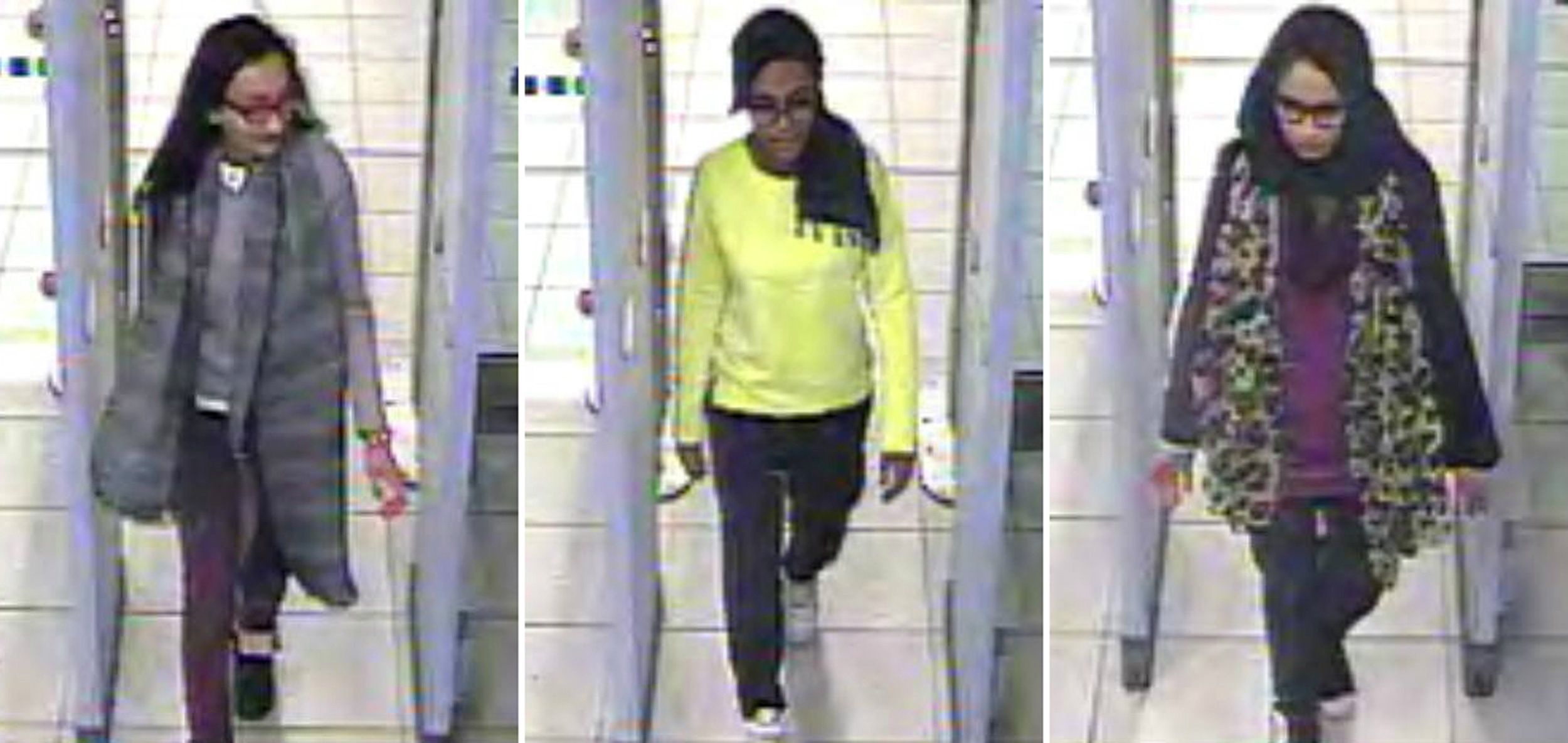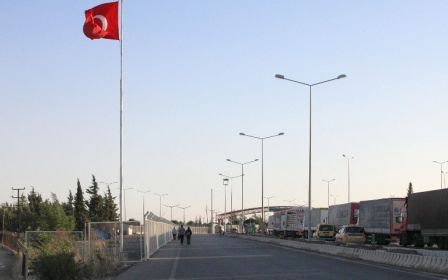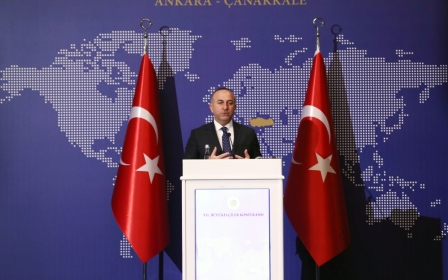British teenage runaway who joined Islamic State 'wants to come home'

A British teenager who left the country to join the Islamic State group (IS) in Syria along with two friends is living in a refugee camp and wants to return home, the UK's Times newspaper has reported.
Shamima Begum, now 19, expressed no regrets about escaping her London life four years ago but said that two of her children had died and, nine months pregnant with her third, she wanted to return.
She had left the IS fighters as they staged their last stand in the town of Baghouz in eastern Syria, near the Iraqi border.
"I was weak. I could not endure the suffering and hardship that staying on the battlefield involved," she told the newspaper from the al-Hawl camp. The camp is run by the Syrian Democratic Forces (SDF) group, made up mostly of members of the Kurdish Democratic Union Party (PYD).
"But I was also frightened that the child I am about to give birth to would die like my other children if I stayed on.
"So I fled the caliphate. Now all I want to do is come home to Britain."
Speaking to the BBC about the case, UK Security Minister Ben Wallace said: "People that went out there often as amateurs are now professional terrorists, or professional supporters of terrorism, and we have to make sure we mitigate that threat should they come back."
Sir Peter Fahy, former chief constable of Greater Manchester police, told the UK broadcaster: "The biggest challenge if she [Begum] did come back will be how the police will keep her safe and how she wouldn’t be some sort of lightning rod for both Islamic and far-right extremists."
'I applied to marry an English-speaking fighter'
Begum and Amira Abase were both 15, while Kadiza Sultana was 16, when they left their school in the east London neighbourhood of Bethnal Green in February 2015.
Another girl from the same area left the year before.
They flew from London's Gatwick Airport to Turkey after telling their parents they were going out for the day, later crossing the border into Syria.
After arriving in Syria's Raqqa, Begum stayed at a house with other newly arrived females wanting to get married.
"I applied to marry an English-speaking fighter between 20 and 25 years old," she told the Times.
Ten days later she married a 27-year-old Dutch man who had converted to Islam.
She has been with him since then, and the couple escaped from Baghuz two weeks ago.
Her husband surrendered to a group of Syrian fighters as they left, and she is now one of 39,000 people in the al-Hawl refugee camp in northern Syria.
'Oppression and corruption'
Describing her life under IS, Begum said: "Mostly it was normal life in Raqqa, every now and then bombing and stuff.
"But when I saw my first severed head in a bin it didn't faze me at all. It was from a captured fighter seized on the battlefield, an enemy of Islam.
"I thought only of what he would have done to a Muslim woman if he had the chance."
She added: "I'm not the same silly little 15-year-old schoolgirl who ran away from Bethnal Green four years ago. And I don't regret coming here."
But Begum said the "oppression" had come as a "shock" and said she felt the IS "caliphate" was at an end.
"I don't have high hopes. They are just getting smaller and smaller," she told the Times.
"And there is so much oppression and corruption going on that I don't really think they deserve victory."
'I just could not endure any more'
One of the four girls, Sultana, has been reported killed and Begum said the other two, Sharmeena Begum - no relation - and Amira Abase stayed on in Baghouz.
"They were strong. I respect their decision," Begum said of her friends.
"They urged patience and endurance in the caliphate and chose to stay behind in Baghouz. They would be ashamed of me if they survived the bombing and battle to learn that I had left."
She added: "They made their choice as single women. For their husbands were already dead."
Begum said she was pregnant, and her two previous children had died - a daughter, Sarayah, who was ill, and a son, Jerah, whose death was linked to malnutrition.
"In the end, I just could not endure any more," she said of her desire to get out. "I just couldn't take it."
Middle East Eye propose une couverture et une analyse indépendantes et incomparables du Moyen-Orient, de l’Afrique du Nord et d’autres régions du monde. Pour en savoir plus sur la reprise de ce contenu et les frais qui s’appliquent, veuillez remplir ce formulaire [en anglais]. Pour en savoir plus sur MEE, cliquez ici [en anglais].






